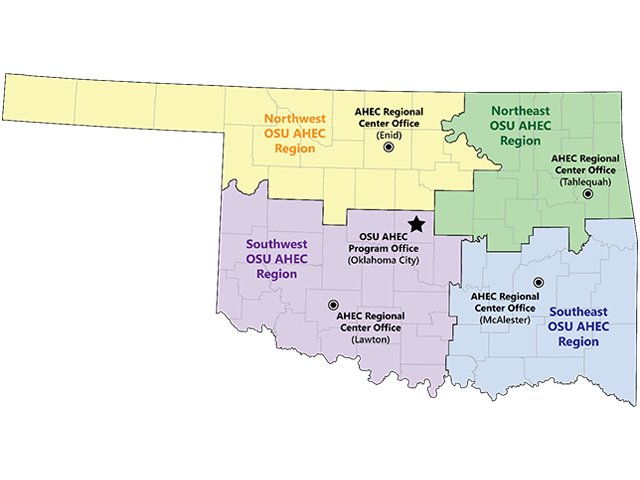Area Health Education Center

Program Goals
Our program recruits individuals from rural backgrounds into health professions and provides community-based training and education in underserved areas to develop a healthcare workforce with a focus on primary care. We prepare individuals through field placements in community-based organizations, health centers, and clinics, and conduct interdisciplinary training involving various health professionals. We offer continuing education programs for professionals providing care in underserved areas, implement effective program measurement and evaluation strategies, and establish youth public health programs to recruit high school students into health careers.

Center for Rural Health
Connect with OSU Center for Rural Health
Stay up-to-date on the latest rural health news, research and information.
This project is supported by the Health Resources and Services Administration (HRSA) of the U.S. Department of Health and Human Services (HHS) under U77HP31121 Point of Service Maintenance and Enhancement, with an annual award amount of $383,407 and a 100% non-federal match. This information or content and conclusions are those of the author and should not be construed as the official position or policy of, nor should any endorsements be inferred by HRSA, HHS or the U.S. Government.

